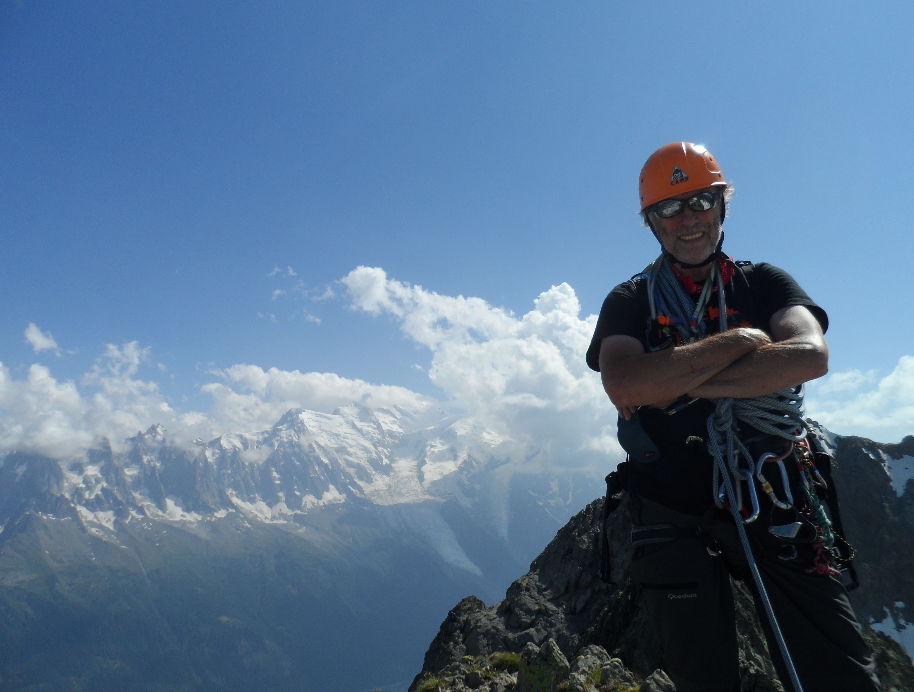Steve Leharne
ECG Bulletin July 2019
ECG committee member Steve Leharne is Professor Emeritus of Environmental Chemistry at Greenwich University.
What inspired you to become a scientist?
It was my school chemistry teacher, Mr Bennett, who first really interested me in chemistry. He was extremely inspirational, very calm and clearly believed that shouting to get the class to listen to him was a poor pedagogic approach.
What inspired you to become a scientist?
It was my school chemistry teacher, Mr Bennett, who first really interested me in chemistry. He was extremely inspirational, very calm and clearly believed that shouting to get the class to listen to him was a poor pedagogic approach.
|
How did you come to specialise in environmental chemistry?
It was, more than anything else, accidental. When I started my chemistry degree at Cardiff University back in 1970, I had a pretty poor understanding of environmental issues. We did, as part of the course, a short unit on radiochemical waste – and that was it. When doing my PhD (looking at plasticised PVC systems), I became increasingly interested in environmental issues and started attending Friends of the Earth meetings. It was when I started working as an analyst for a fine chemical company in South Wales that I started undertaking environmental analysis. This included measurements of workplace atmospheric methane and ammonia levels, and phenol run-off levels in a nearby stream. This, coupled with a healthy dose of self-directed learning, led ultimately to my academic position in environmental chemistry. |
Could you describe your current job?
I’m retired now, but for 32 years I was employed at the University of Greenwich and its predecessor institutions. Initially, I taught units in Environmental Chemistry, and my research was focused on acid precipitation and lead pollution. However, because of my interest in colloid and surface chemistry, I gravitated towards surfactant facilitated remediation of contaminated soils and subsurface systems. From there, I became interested in the fate of non-aqueous phase liquids in soils and aquifers. My teaching reflected these interests, and I delivered units in contaminated land and contaminant hydrogeology.
What advice would you give to anyone considering a career in environmental chemistry?
Don’t make the mistake of thinking that only some limited aspects of chemistry are important for the practice of environmental chemistry. For example, I see increasing scope for the use of computational quantum chemistry for elucidating a variety parameters that are important in environmental chemistry. These could be rate constants for very slow reactions or partition constants for emerging contaminants, for example.
What are some of the challenges facing the environmental chemistry community?
We need to understand how environmental chemical processes may change as the climate changes. Microplastics, say, are clearly emerging as an important concern. A key issue is how we communicate environmental concerns to a sceptical public.
What is the most rewarding aspect of your career so far?
Without a doubt, it has been the friends I have made; I have enjoyed watching the career progress of those young researchers who have been trained in our laboratories.
If you weren’t a scientist what would you do?
No idea!
And what do you do when you are not working?
I love the outdoors – be it walking the in Lake District, mountaineering in the Alps, rock climbing in North Wales, canoeing in Canada or trekking in the Atlas mountains in Morocco.
I’m retired now, but for 32 years I was employed at the University of Greenwich and its predecessor institutions. Initially, I taught units in Environmental Chemistry, and my research was focused on acid precipitation and lead pollution. However, because of my interest in colloid and surface chemistry, I gravitated towards surfactant facilitated remediation of contaminated soils and subsurface systems. From there, I became interested in the fate of non-aqueous phase liquids in soils and aquifers. My teaching reflected these interests, and I delivered units in contaminated land and contaminant hydrogeology.
What advice would you give to anyone considering a career in environmental chemistry?
Don’t make the mistake of thinking that only some limited aspects of chemistry are important for the practice of environmental chemistry. For example, I see increasing scope for the use of computational quantum chemistry for elucidating a variety parameters that are important in environmental chemistry. These could be rate constants for very slow reactions or partition constants for emerging contaminants, for example.
What are some of the challenges facing the environmental chemistry community?
We need to understand how environmental chemical processes may change as the climate changes. Microplastics, say, are clearly emerging as an important concern. A key issue is how we communicate environmental concerns to a sceptical public.
What is the most rewarding aspect of your career so far?
Without a doubt, it has been the friends I have made; I have enjoyed watching the career progress of those young researchers who have been trained in our laboratories.
If you weren’t a scientist what would you do?
No idea!
And what do you do when you are not working?
I love the outdoors – be it walking the in Lake District, mountaineering in the Alps, rock climbing in North Wales, canoeing in Canada or trekking in the Atlas mountains in Morocco.


